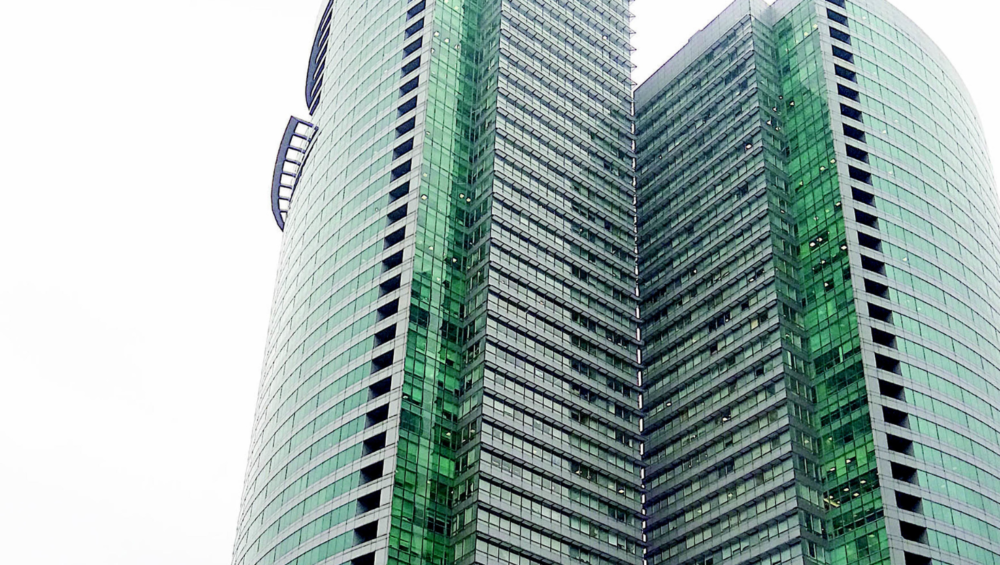The Economy in Makati: Growth, Opportunities, and the Road Ahead
Makati City, often referred to as the financial capital of the Philippines, stands out as one of the country’s most vibrant economic hubs. Located at the heart of Metro Manila, this city has long been a focal point for business, commerce, and finance. With its towering skyscrapers, bustling commercial districts, and top-tier infrastructure, Makati is a prime destination for both local and international investments.
But what makes the economy in Makati so unique? What are the factors contributing to its continued growth, and what opportunities does it present to businesses and investors? In this comprehensive guide, we’ll explore the key sectors driving Makati’s economy, the challenges it faces, and the future of this thriving metropolis.
A Historical Perspective on Makati’s Economy
Makati’s transformation from a modest residential area into a bustling financial powerhouse began in the mid-20th century. The city’s development was heavily influenced by visionary real estate developers, particularly the Ayala family, who spearheaded the construction of the Makati Central Business District (CBD). Over the years, the city attracted multinational companies, leading banks, financial institutions, and corporate headquarters, positioning it as the Philippines’ premier business destination.
Today, Makati continues to be a magnet for foreign and local investments, with its economy driven by a well-established financial sector, robust real estate market, and a growing number of small to medium-sized enterprises (SMEs).
The Key Drivers of Makati’s Economy
1. Financial and Banking Sector
Makati is home to some of the largest banks and financial institutions in the Philippines, contributing significantly to the local economy. The city hosts the headquarters of institutions such as the Bank of the Philippine Islands (BPI), Metrobank, and Rizal Commercial Banking Corporation (RCBC). The presence of these financial giants has cemented Makati’s reputation as the country’s leading financial district.
The financial services sector plays a crucial role in providing capital for businesses, facilitating trade, and supporting real estate development. Moreover, the city’s thriving banking industry is instrumental in attracting foreign direct investment (FDI), offering services that cater to both corporate and individual clients, including asset management, credit, and financial advisory.
2. Real Estate Development
One of the standout features of Makati’s economy is its booming real estate sector. With high demand for commercial, residential, and mixed-use developments, property developers have continuously expanded the city’s skyline. Iconic buildings like the PBCom Tower, GT Tower, and RCBC Plaza are just a few examples of the state-of-the-art commercial spaces that dominate the landscape.
Makati’s property market caters to a wide array of clientele, from multinational corporations seeking office space in the CBD to expatriates and high-net-worth individuals investing in luxury condos. The city’s reputation as a premium address makes it a top choice for residential and office developments, further driving up property values.
The real estate sector is expected to continue its upward trajectory, especially with the rise of green buildings and smart cities, which focus on sustainability and technology integration.
3. Retail and Commerce
Makati has emerged as a top shopping destination, contributing significantly to its economy through retail and commerce. Shopping centers such as Ayala Center, Greenbelt, Glorietta, and Power Plant Mall are not only places for leisure but also key players in the retail economy. These malls attract both local and international brands, catering to the city’s affluent residents, tourists, and corporate workers.
Beyond luxury retail, Makati’s thriving commerce also encompasses small and medium-sized enterprises (SMEs), contributing to the broader retail ecosystem. From food and beverage outlets to specialty stores, SMEs in Makati provide a wide range of products and services, helping to diversify the city’s commercial base.
4. Business Process Outsourcing (BPO)
The Business Process Outsourcing (BPO) industry has been a significant contributor to the Philippine economy, and Makati is no exception. With the city’s modern infrastructure and strong telecommunications network, it has become a preferred location for BPO companies. These firms provide a wide range of services, from customer support to IT and finance outsourcing, driving employment and bringing in substantial revenue.
BPOs in Makati benefit from the city’s strategic location, proximity to other business districts, and a highly skilled workforce. The industry continues to thrive, with Makati being home to global outsourcing giants, offering services to international markets. This sector is also a major employer, contributing to both job creation and economic growth.
The Role of Small and Medium Enterprises (SMEs) in Makati’s Economy
While Makati is renowned for its large corporations and multinational companies, the role of SMEs cannot be overlooked. SMEs form the backbone of the local economy, providing goods and services that cater to the everyday needs of residents and workers. From tech startups and digital marketing agencies to food stalls and service-oriented businesses, SMEs contribute to the dynamism and diversity of Makati’s economy.
The local government of Makati has also implemented various programs to support SMEs, offering business permits, access to financial services, and training programs. This support has been crucial in fostering entrepreneurship and ensuring that SMEs continue to thrive, even amid economic challenges.
Investment Opportunities in Makati
1. Real Estate Investments
Makati’s booming real estate market presents a wealth of opportunities for investors. From luxury condominiums to office spaces, the demand for premium properties in the city remains high. Investors can take advantage of the appreciation in property values as Makati continues to attract businesses, expatriates, and affluent residents.
Additionally, the rise of co-working spaces has opened up new investment avenues, catering to the growing number of freelancers, startups, and remote workers. Investing in properties that offer flexible workspaces is an increasingly attractive option, particularly with the post-pandemic shift towards hybrid work models.
2. Financial Services
Given its status as a financial hub, there are vast opportunities in Makati’s banking and finance sector. Investors can explore opportunities in fintech startups, which are revolutionizing how financial services are delivered. The demand for digital banking, mobile payments, and innovative financial solutions is growing, offering high returns for investors willing to tap into the fintech space.
3. Technology and Startups
Makati has seen a rise in tech startups, driven by the city’s innovation-friendly environment. Investors can look into emerging industries such as e-commerce, mobile app development, and digital marketing services. With the support of government initiatives and venture capital, Makati’s tech ecosystem is set to expand, presenting significant growth opportunities for those looking to invest in technology-driven businesses.
4. Tourism and Hospitality
Makati’s status as a business and cultural hub makes it a prime destination for tourism and hospitality investments. With a steady influx of business travelers, expatriates, and leisure tourists, the demand for hotels, serviced apartments, and short-term rental properties remains strong.
Moreover, Makati’s dining scene is continuously evolving, offering potential investment opportunities in the food and beverage sector. From high-end restaurants to trendy cafés, the city’s hospitality industry is ripe for growth.
Challenges Facing Makati’s Economy
Despite its many strengths, the economy of Makati faces several challenges that could impact future growth:
1. Traffic and Infrastructure Issues
Makati is notorious for its traffic congestion, which affects productivity and increases transport costs. While the city has undertaken numerous infrastructure projects to ease congestion, traffic remains a major problem for businesses and residents alike.
2. Rising Property Costs
While the real estate market presents opportunities, it also comes with the challenge of rising property prices. The high cost of living and doing business in Makati can deter some investors, particularly those looking for more affordable locations. As property values continue to rise, affordability could become a critical issue, especially for startups and SMEs.
3. Sustainability Concerns
As Makati continues to grow, sustainability will be a crucial issue. The city’s rapid urbanization has led to environmental concerns such as waste management, energy consumption, and air pollution. In response, Makati has made strides towards adopting greener practices, but the challenge of balancing growth with environmental sustainability remains.
The Future of Makati’s Economy
Looking ahead, Makati’s economy is poised for continued growth, driven by its strong financial sector, real estate market, and thriving BPO industry. The city’s focus on innovation, sustainability, and infrastructure development will play a key role in shaping its future.
Government initiatives aimed at improving public transport, reducing traffic congestion, and promoting green building practices are expected to make Makati an even more attractive destination for investors. Additionally, the rise of digital transformation and technology-driven industries will open up new avenues for growth, particularly in fintech, e-commerce, and startups.
Makati’s economy is a dynamic and thriving ecosystem, offering a wealth of opportunities for businesses, investors, and professionals. Its well-established financial sector, booming real estate market, and diverse SME landscape make it a key driver of the Philippine economy. While challenges such as traffic congestion and rising property costs exist, Makati’s commitment to innovation and sustainability ensures its position as one of the most important economic hubs in Southeast Asia.
For investors and businesses seeking growth, Makati remains a top destination, offering both stability and potential in the ever-evolving global market.



